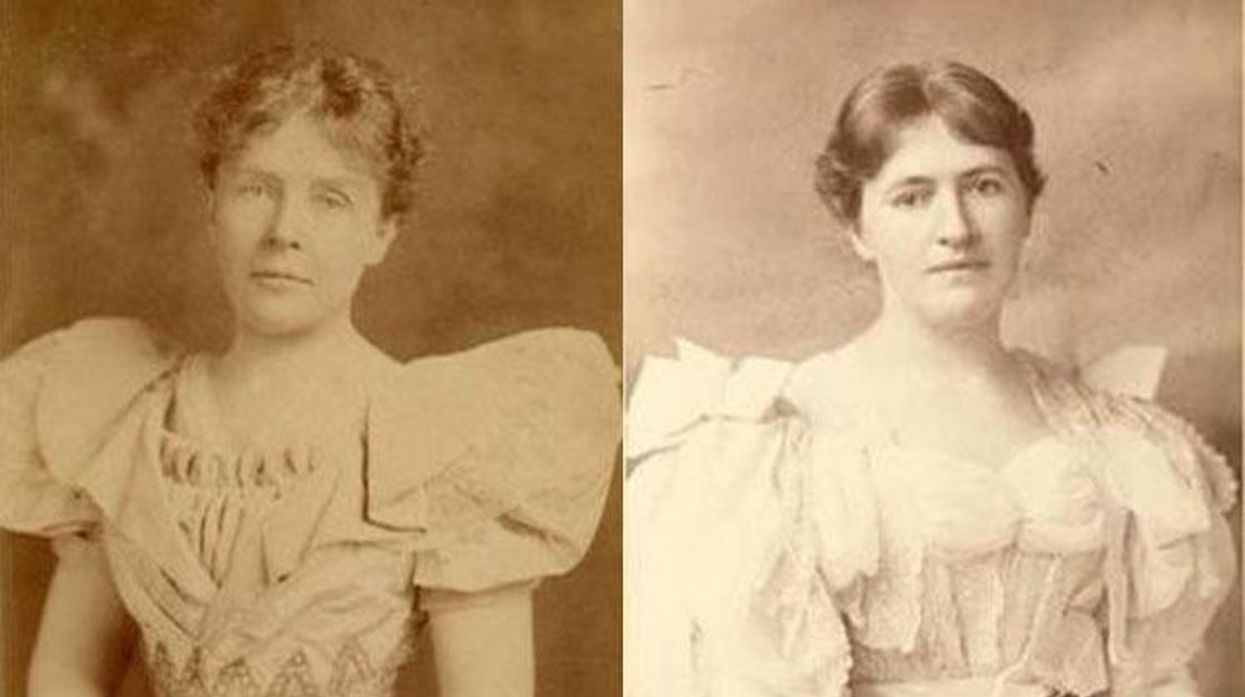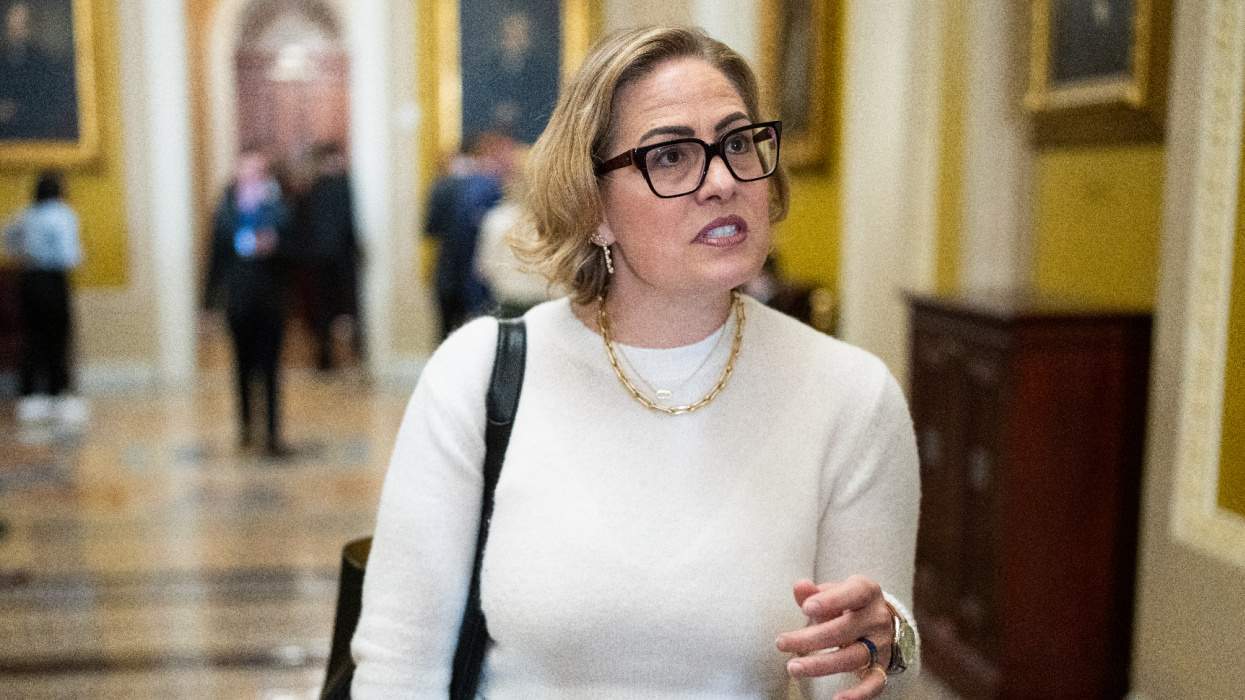Many historians and biographers believe First Lady Eleanor Roosevelt had a longtime love affair with journalist Lorena Hickok. And Pete Buttigieg's husband, Chasten, would be not only the first "first gentleman" but the first gay one should Mayor Pete win the presidency.
However, a new book reveals that a first lady from the 19th century -- Rose Cleveland, who served in the role for her brother, President Grover Cleveland -- went on to have a lengthy same-sex relationship.
When Grover Cleveland was inaugurated for his first term in 1885, he was a bachelor, and "protocol for unmarried or widowed presidents called for a female relative to fill the role of first lady," The Washington Post notes. "In stepped his sister, Rose." During the presidential campaign, Grover Cleveland was beset by rumors that he had fathered a child out of wedlock (the rumors were true), so Rose, a teacher and author of scholarly books, "was seen as an important counterbalance to her brother's scandalous baggage," the Post reports.
Now the new book Precious and Adored: The Love Letters of Rose Cleveland and Evangeline Simpson Whipple, 1890-1918, details Cleveland's relationship with another woman, a widowed heiress. They met in the winter of 1889-1890, probably in the popular vacation destination of Florida, according to the book, edited by Lizzie Ehrenhalt and Tilly Laskey. Cleveland was no longer first lady at this time -- she had yielded the role after 14 months, when her brother married Frances Folsom, and he had left office in 1889; he would return to the presidency four years later, becoming the only president to serve nonconsecutive terms. Rose Cleveland and Evangeline Simpson (who took the Whipple name in a later marriage) quickly fell in love. They began corresponding after Cleveland returned home to upstate New York and Simpson to Massachusetts.
"My Eve! Ah, how I love you!" Cleveland wrote to Simpson early on. "It paralyzes me ... Oh Eve, Eve, surely you cannot realize what you are to me. What you must be. Yes, I dare it, now, I will not longer fear to claim you. You are mine by every sign in Earth & Heaven, by every sign in soul & spirit & body -- and you cannot escape me. You must bear me all the way, Eve ..."
Only Cleveland's letters have been preserved, but she sometimes quoted Simpson's correspondence, the Post reports. One quote is "Oh darling, come to me this night -- my Clevy, my Viking, My -- Everything, Come! God Bless Thee."
Women of the era, especially wealthy white women, often had what were called "romantic friendships," marked by emotional and intellectual intimacy, Ehrenhalt told the Post. But she and Laskey are certain that Cleveland and Simpson's relationship was intimate in every sense, including sexual, with one letter describing "long rapturous embraces" that "carry us both in one to the summit of joy, the end of search, the goal of love!" At the time there was really no term for such relationships, the editors noted, as the word "lesbian" was used only in regard to the ancient Greek poet Sappho.
After six years, during which Cleveland and Simpson traveled and bought property together, there came a break: Simpson married Bishop Henry Whipple, an Episcopal clergyman from Minnesota, in 1896. Cleveland had pleaded with Simpson not to marry him, but the marriage took place nonetheless. Cleveland then went on an extended tour of Europe with a woman friend. She continued writing to the woman now known as Evangeline Simpson Whipple, but her letters had a much less romantic tone.
When the bishop died five years later, the women resumed their relationship, with lengthy visits to each other's home. In 1910, they went to Italy together to care for Whipple's ailing brother. After he died two years later, they stayed on, sharing a home in Bagni di Lucca, a village in the Tuscany region. "I do think they associated with Italy a kind of romantic idea of freedom to love, freedom to have a relationship without people getting in your business," Ehrenhalt told the Post.
They assisted refugees in Italy during World War I, but Cleveland died of influenza in November 1918, shortly after the war ended. Whipple wrote to a relative, "The light has gone out for me. ... The loss of this noble and great soul is a blow that I shall not recover from." She lived another 12 years, authoring a book on Tuscany and dedicating it to Cleveland.
Cleveland's letters were in a collection of papers that one of Bishop Whipple's descendants donated to the Minnesota Historical Society in 1969. When staff members realized they provided evidence of a lesbian relationship, they decided not to let the public view the letters, but they reversed that policy in 1978. While other books have mentioned the correspondence, Ehrenhalt and Laskey's work is the first complete collection of it.
"There have been women loving other women for all periods of history," Ehrenhalt told the Post.














